I thought the Feast of Sts. Joachim and Anne (July 26) might be a good time to talk about Jesus. But then again, any time is a good time to talk about Him!
There are certain occasions, however, when we can gain some insight into His sacred humanity through meditating on what we know of His human origins. His holy grandparents certainly provide us with a sacred window, however small, into His life.
Here we have to rely not on biblical evidence, but on ancient legends about His family of origin. A document that dates back as far the earliest books of the New Testament gives us the few bits of information we know about Jesus’ grandparents. It’s called The Gospel of James.
This book is more a record of the life of the Virgin Mary than of Jesus, but the information it contains paints an intriguing picture of Jesus’ immediate family background.
For example, from the Gospel of James we get the names of Mary’s parents, Joachim and Anne, and the delightful story of her dedication to the Lord when they brought her to the Temple of Jerusalem at the age of three. It is also the most authoritative early witness to Our Lady’s marriage to Joseph and her perpetual virginity.
Their Hometown: Sepphoris
Then there is another ancient tradition that says that the town of Sepphoris was the home of Our Lady’s family. Her parents and extended family were believed to have lived there and Mary was probably born there.
There is also a strong historical record for this town that is pretty astonishing. In fact, it’s hard to think of a town that has been through so much drama over such a long
- Herod Antipas made it the administrative capital of Northern Galilee during Jesus’ childhood, with a Roman amphitheater and numerous synagogues.
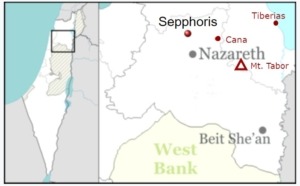 (This will be key to our story below.)
(This will be key to our story below.) - The Romans invaded and destroyed it in 70 AD and in the next century it became the seat of the Jewish Sanhedrin.
- The entire town was torn apart by a massive earthquake in 373 AD.
- In the 400s, it was rebuilt and absorbed into the Byzantine (Greek) Empire.
- Then it was taken over by Muslim invaders in the late 600s.
- The Crusaders conquered it in the early 1000s and built a large church over the foundations of an earlier church in honor of Our Lady.
- Sepphoris was absorbed into the Ottoman Empire (Turkish) in the 1300s through the First World War.
- It became depopulated due to the Arab-Israeli War in 1948.
- Today the area an archeological site surrounded by a national park with an Arab village (Saffuriya) and a Jewish village (Tzippori) nearby.
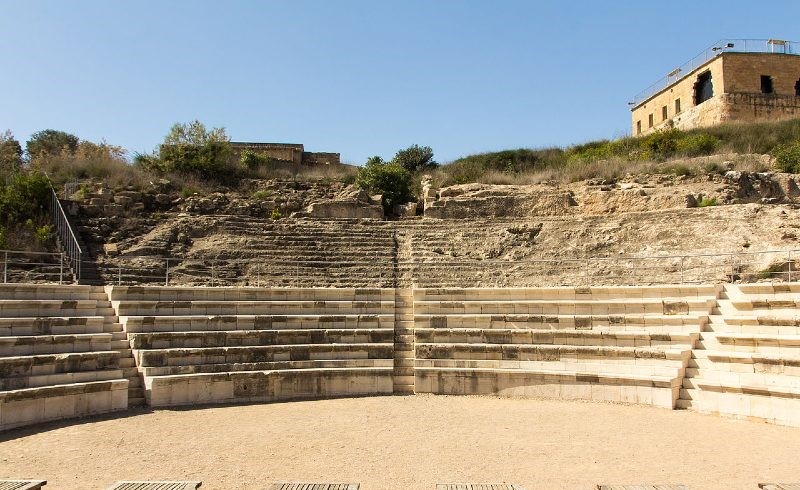
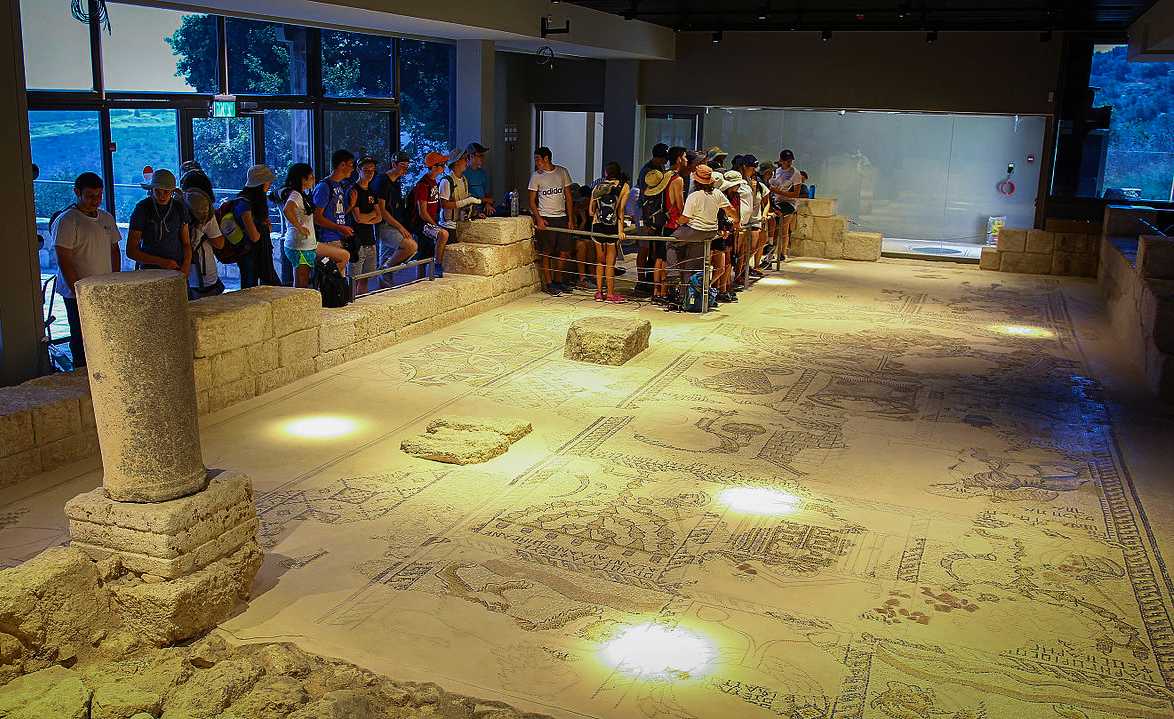
I told you it was an amazing history! Romans, Rabbis, Byzantines, Crusaders, Muslims, Ottoman Turks, Arabs and Israelis all controlled the territory of Jesus’ family through the centuries. Wow!
But why is all this history important? Mainly because Our Savior probably spent time with His family there and consecrated the ground by His very presence. Here’s what I think might have happened.
A Family and a Job
St. Joseph’s primary reason for settling the Holy Family in Nazareth after they returned from Egypt was to fulfill the prophecy that Jesus would “be called a Nazarene” (Matthew 2:23). But even without divine guidance, there was probably also a human explanation for his choice as well.
It is entirely possible that Joseph chose Nazareth because it was close to an actual job that needed his skills as a craftsman!
As noted above, Sepphoris was experiencing a building boom during the very period when Herod was expanding the city to become the provincial capital, and they needed skilled carpenters.
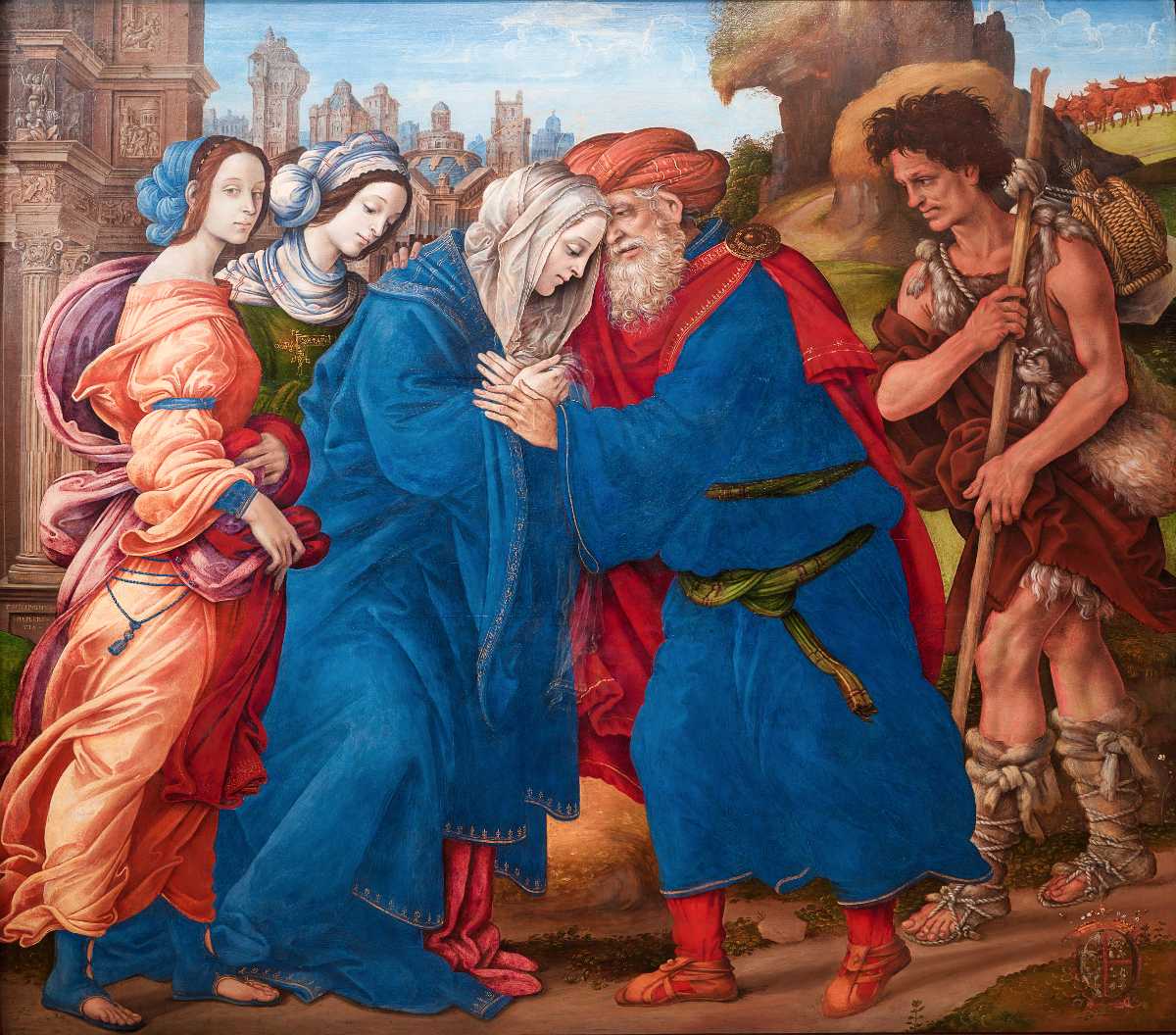
The Meeting of Joachim and Anne at the Golden Gate by Filippino Lippi
And it was literally one hour’s walk from Nazareth. If Mary’s parents and relatives lived in that same city, the proximity to family was another very good reason for Joseph to settle in Nazareth.
It’s an historical irony, but the massive public building project was the work of King Herod Antipas, the son of the wicked Herod the Great who had tried to kill the Baby Jesus some years earlier.
If Joseph worked in Sepphoris, then we can assume that he made the several-mile trip from Nazareth on a regular, if not daily, basis. Or perhaps, Mary’s family would have given him lodging and allowed him to stay for longer periods of time to work.
We can also imagine that Joseph brought the boy Jesus along with him on his trips to Sepphoris. Joseph, of course, was teaching his boy the skills of the carpentry trade, and that would have required that Jesus be with him for direct instruction.
And like any family, of course, they would have taken the occasions of religious festivals and family celebrations to be together.
The Valley of Bet Netopha
If the ancient traditions are correct , then it seems pretty clear that, Jesus would have known His grandparents and extended family well. That explains why the Gospel often refers to Jesus’ “brothers and sisters” which the Tradition has always understood as close extended family members, not siblings.
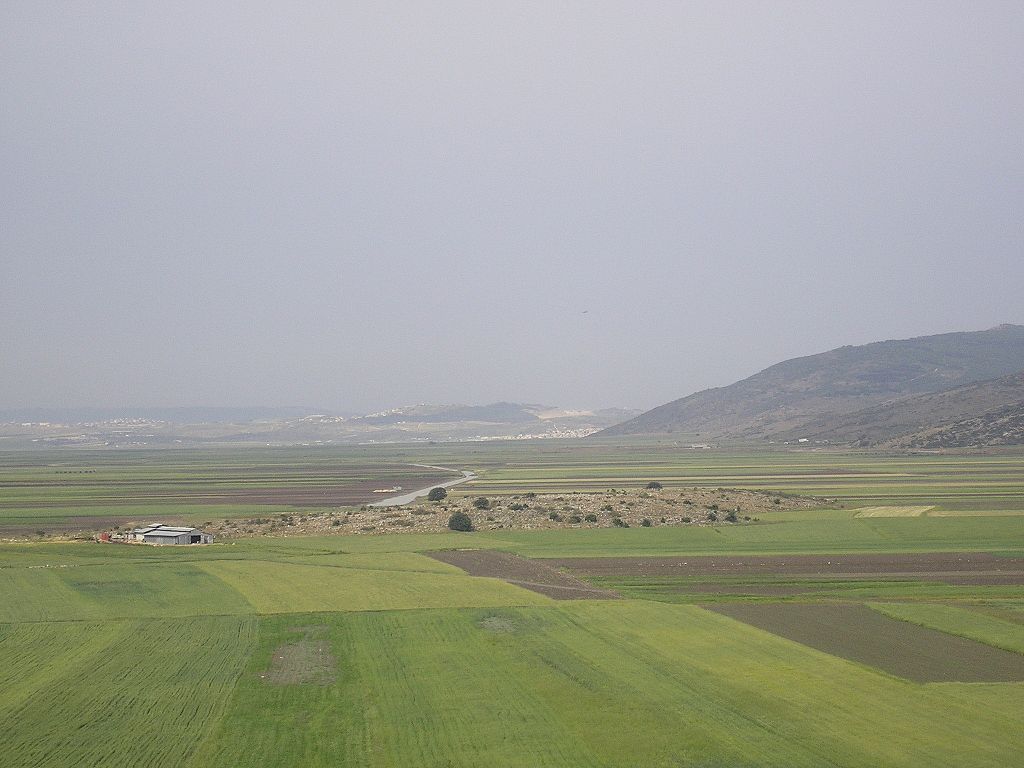
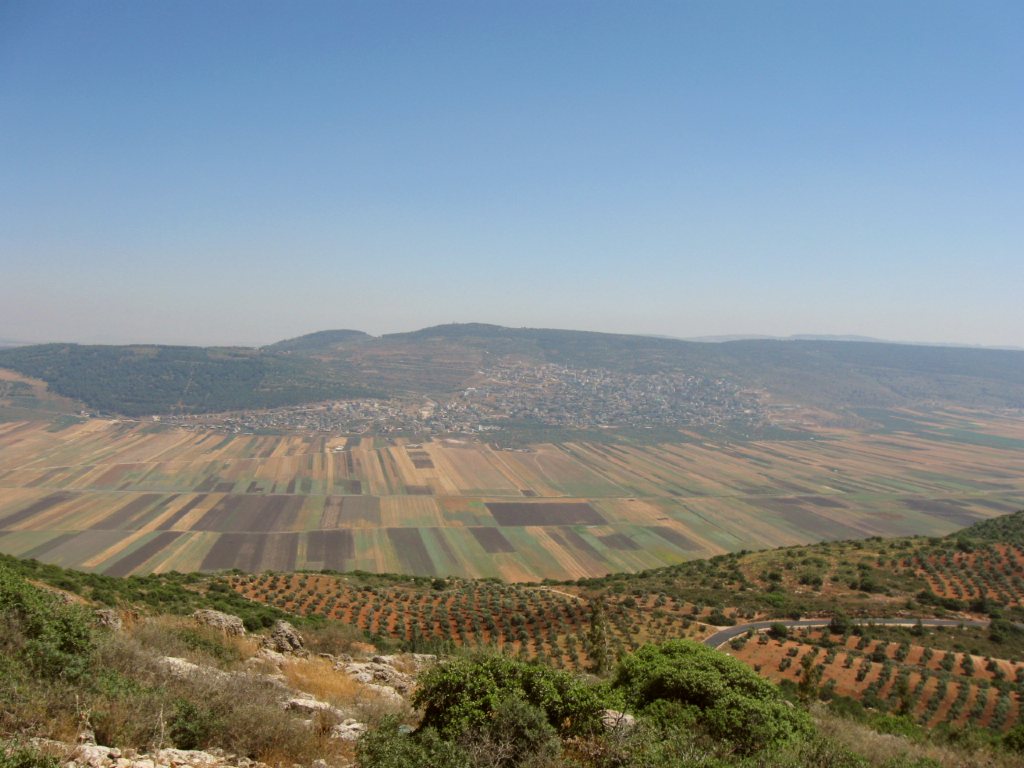
To get to Sepphoris, the Holy Family would have passed through a lush and fertile valley called Bet Netopha. The east-west oriented valley is ten miles long but just two miles wide where they would have crossed it going north. On either side of the valley are rough hillsides dotted with small communities.
In those hidden years of Jesus’ life when He was under the tutelage of Joseph and Mary, we are told that He “grew in grace and stature before God and man” (Lk 2:52). We have no biblical evidence of actual interactions with family members other than His parents during those years, but that gap of information has been ripe for the Christian imagination over the centuries, augmenting and expanding on the traditional stories in the Gospel of James.
If you’ll allow me, I’d like to share with you a story I wrote along those same lines which imagines an encounter of the boy Jesus with His own grandfather, Joachim.
A Grandfather’s Gift
On one special Jewish feast day when Jesus was just 8 or 9 years old, He traveled with Mary and Joseph to the city of Sepphoris to celebrate the feast with His grandparents, Joachim and Anne. The elderly couple’s excitement to see their grandchild again was palpable.
By this time, the grandparents knew well that their daughter Mary and her husband Joseph had given the boy Jesus (called Yeshua in Hebrew) a good education in the Jewish faith. By all accounts, the boy was preparing well for His bar mitzvah and was reading the Hebrew Scriptures like a master now!
But Joachim, who was a scribe of the Jewish law, had a gift of his own to offer the boy, and since he was getting on in years, he knew he had to give it in the time he had left on this earth. It was not a physical gift but a spiritual one.
As a teacher of Israel, Joachim had dedicated his life to handing on the truth of God’s commandments to the Jews. He knew the scriptures through and through and had faithfully taught the Torah to his daughter. Now he wanted to communicate something of the depth of his love for God’s Law to his grandson.
“Do you know what my favorite passage of the Holy Scripture is, Yeshua?” asks Joachim. That simple question piques the boy’s interest and claims a captive audience.
“No grandpa,” said the boy. “Is it in the first five books of the Law of Moses?” He asks innocently.
“Not exactly, but let’s go see,” says Joachim as he leads Jesus into a back room to consult the scriptures.
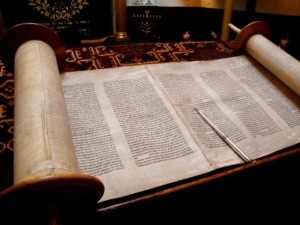 As they enter the room, Jesus’ eyes widen as he sees the huge ancient scroll that His grandfather keeps in a place of honor. The pungent odor of the old calf-skin parchment immediately causes Him to wrinkle his nose as He walks into the room, but He is used to the smell from all the other scrolls He has read so far in the synagogue.
As they enter the room, Jesus’ eyes widen as he sees the huge ancient scroll that His grandfather keeps in a place of honor. The pungent odor of the old calf-skin parchment immediately causes Him to wrinkle his nose as He walks into the room, but He is used to the smell from all the other scrolls He has read so far in the synagogue.
Taking up the great scroll and unfurling it to the Book of the Prophet Isaiah, Joachim tells the boy to sit and listen for a moment.
“This you must hear, Yeshua, this you must hear,” the grandfather says with some excitement in his voice.
“Even though your father has probably made you read this passage a dozen times already, it’s something that can’t just be read mechanically. It has to be meditated on. It’s different when you hear it spoken, too. There’s nothing like it,” he says.
Then, with total concentration on the text, Joachim uses the pointer to identify the passage, and says: “Let me read it to you. Listen carefully now.”
Here is my servant whom I uphold,
my chosen one with whom I am pleased.
Upon him I have put my spirit;
he shall bring forth justice to the nations.
He will not cry out, nor shout,
nor make his voice heard in the street.
A bruised reed he will not break,
and a dimly burning wick he will not quench.
He will faithfully bring forth justice.
He will not grow dim or be bruised
until he establishes justice on the earth;
the coastlands will wait for his teaching.
Joachim stops reading and tears up for a moment at the magnificent words of the Prophet. He then says,
“The Prophet is talking about the Messiah, Yeshua! Can you imagine what our Messiah will be like when He comes? Just think of that! He will be that righteous man the Prophet speaks about, won’t He, my boy?
“And no doubt, he’ll be the most righteous of all. The Prophet says that even the lands unknown to us will wait for His teaching! Blessed be His Holy Name!”
Pausing in a moment of sheer amazement at the thought of the long-awaited Messiah, Joachim returns to his reading:
I, the LORD, have called you for justice,
I have grasped you by the hand;
I formed you, and set you
as a covenant for the people,
a light for the nations,
To open the eyes of the blind,
to bring out prisoners from confinement,
and from the dungeon, those who live in darkness.
(Isaiah 42:1-4.6-7)
“Ah, I can hardly read this without crying!” Joachim says.
“Yes, the Messiah will do all these marvelous things, won’t He, Yeshua – opening the eyes of the blind, freeing prisoners, healing sick people? He will not be an ordinary man. He will be the bearer of God’s Spirit.
“And He will do them in a way that no one expects, not as a pagan ruler like Herod, who lords his authority over everyone. The Messiah will do them like the LORD God would, in a totally marvelous and miraculous way.
“The Prophet says elsewhere that the Messiah will even become a sacrifice for us – like the lambs we offer in the temple! – for the sins of our people and even for our personal sins.
“Can you imagine that, Yeshua? Can you just imagine?”
Joachim trails off with that question on his lips and pauses, full of wonder, in his expectation of the Anointed One.
Jesus wants to answer but can only marvel at His grandfather’s profound devotion to the promise of God. He falls silent as He watches the old man wipe tears from his eyes.
Then, as he hands the stylus for the boy to continue the reading, Joachim says solemnly:
“But will we be ready for Him when He comes?”
——-
Map of Galilee (Ynhockey); Amphitheatre and Fort (Oren Rozen); Joachim and Anne (Filippino Lippi); Scroll (Lawrie Cate); Synagogue-Mosaic floor (Nis101).
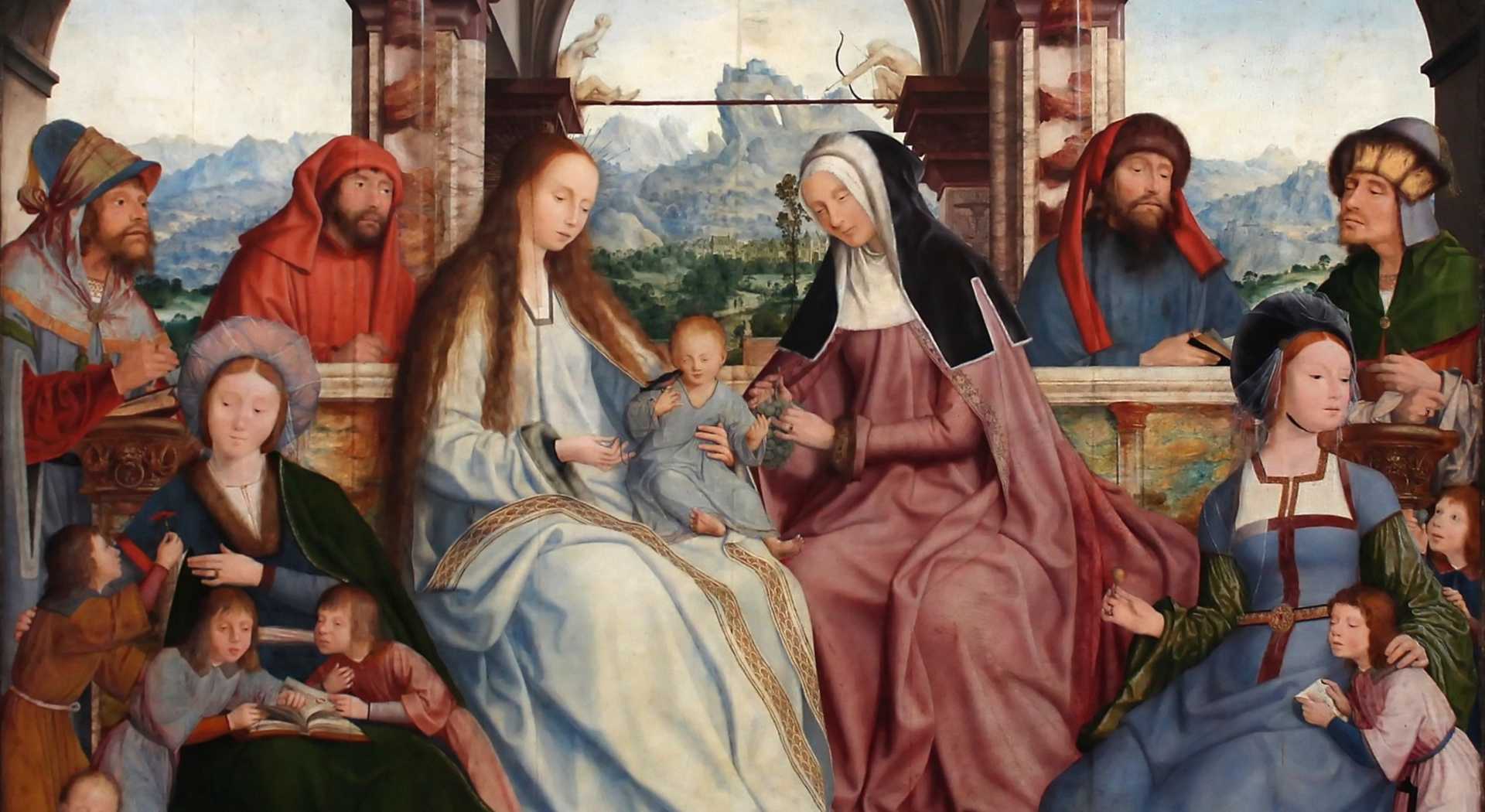
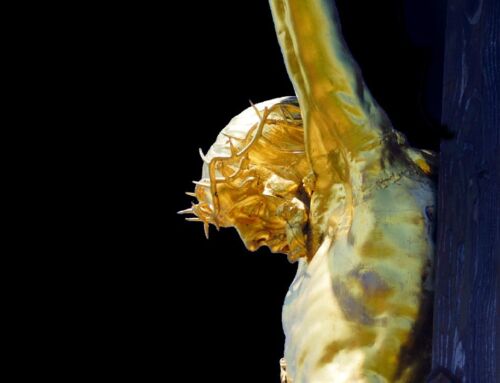
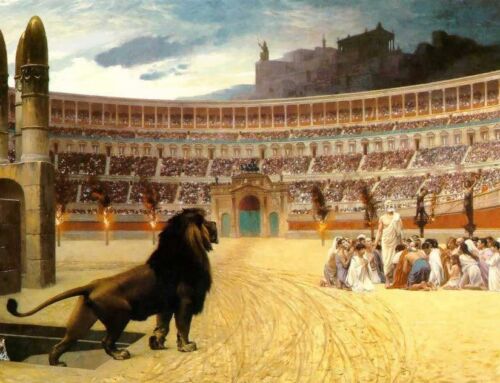
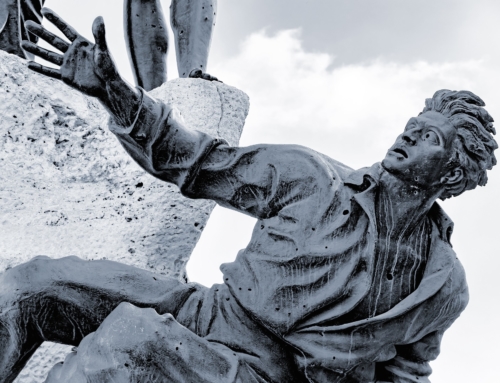
Leave A Comment